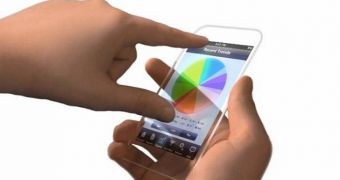After visiting “technology industry component suppliers,” analyst Katy Huberty with Morgan Stanley came to the conclusion that iPhone 6 probably won’t cost more than its predecessor (the iPhone 5s) and that the iWatch might not sell too many units at first, among other things.
All this comes in a report obtained by AppleInsider, which notes that the next-generation iPhone could have a bill of materials (BOM) just $20 (€14.53) to $30 (€21.80) higher than the current-selling model (the iPhone 5s) “largely due to the expectation of a larger display and improved camera.”
“However, we don't detect any abnormal component pricing pressure from Apple suggesting lower inventory, deprecation, and warranty costs along with the potential for a modest price increase and/or NAND mix change may help digest the higher (bill of materials),” Huberty wrote.
In other words, if the BOM doesn’t take a serious hit, you can expect Apple to foot the bill. Customers are very sensitive to price, and iPhones are already expensive. It wouldn’t be recommended to give competitors even more edge in the pricing department, no matter how advanced iPhone 6 turns out to be.
However, this being said, Apple is also rumored to be in talks with the world’s leading carriers for a potential price increase for the iPhone 6 by as much as $100 / €100, resulting in a subsidy price of $299 / €299. While some customers wouldn’t have a problem with the high price, wanting the latest and greatest iPhone the minute it’s made available, the general population would probably be ticked off by the price spike.
In her research note, Huberty also said she and her fellow analysts at Morgan Stanley expected iPad sales to be weak, much like the rest of the tablet market. Component suppliers suggested to her that iPad shipments will decrease by 1 percent in the second half of 2014 and that things will remain unchanged until 2015.
Finally, Huberty reportedly also says that suppliers are “skeptical about wearable devices.” She projects that “the nascent market could provide an upside surprise in 2015 volumes,” and that “if Apple were to launch a so-called ‘iWatch,’ it could outsell the iPad in its first quarter,” according to the report.
It isn’t clear if Apple is having trouble building enough iWatches for launch this year or if the analyst suggests it will have a slow start because customers themselves are skeptical about wearables, but the latter scenario is more likely.
Google Glass is a good example of how customers react to new products, and while the iPad had to face similar concerns at first, the device took off fairly rapidly.

 14 DAY TRIAL //
14 DAY TRIAL //